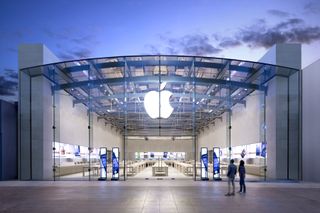Apple complies with 80% of US data requests
UK government only gets answers on half of its queries

Apple complied with just over half of UK government data requests in the second half of last year, compared to 80 per cent of US ones.
UK law enforcement submitted 1,969 requests for information on 3,830 Apple devices between July and December 2015, with Apple giving details in 55 per cent of cases.
Of 4,000 US law enforcement requests, Apple complied with 80 per cent of them.
It was a similar story on government requests for details on users' accounts, with Apple answering 58 per cent of the UK government's 208 requests, and 82 per cent of the US's 1,015 requests.
The tech giant's Report on Government Information Requests explained that most demands for device data relate to information about lost or stolen devices, while governments normally seek users' names and addresses when making an account request.
"We consider these requests very carefully and provide account content when the legal request is a search warrant," Apple said.
US data requests succeeded far more frequently than most other countries', with an overall average success rate of 81 per cent, compared to 51 per cent for Europe, Middle East, India and Africa.
Get the ITPro. daily newsletter
Receive our latest news, industry updates, featured resources and more. Sign up today to receive our FREE report on AI cyber crime & security - newly updated for 2024.
The report comes after Apple fended off an FBI lawsuit that demanded the tech giant's help in accessing data on an iPhone used by one of the San Bernardino shooters.
The FBI eventually turned to a third-party to bypass the phone's security barrier, but it has opened up a global debate on security and privacy.
WhatsApp has enabled end-to-end encryption on all communications, meaning government agencies must break that encryption if they want to access people's personal messages.
BlackBerry CEO John Chen said that tech firms must be "good corporate citizens" earlier this week, however, claiming they should answer government requests for data when they can.
"We have long been clear in our stance that tech companies as good corporate citizens should comply with reasonable lawful access requests. I have stated before that we are indeed in a dark place when companies put their reputations above the greater good," he said.
His comments come after Vice revealed the Canadian government had broken BlackBerry's encryption key in 2010, and has been able to intercept messages on the platform since then.
Most Popular





